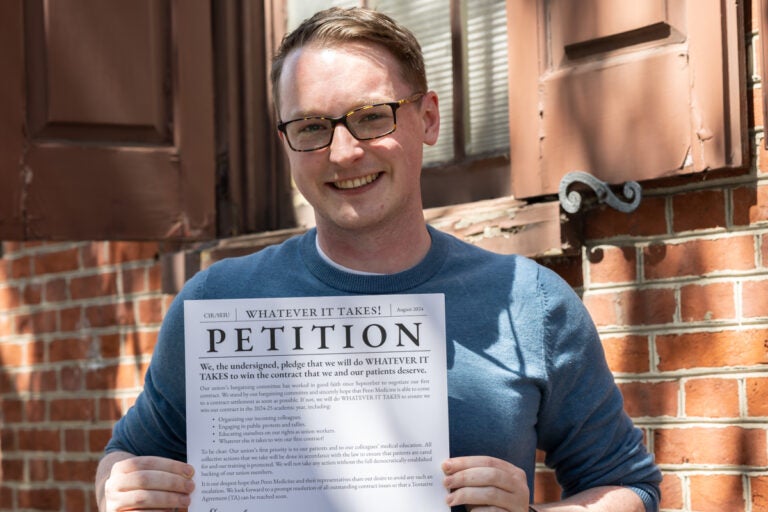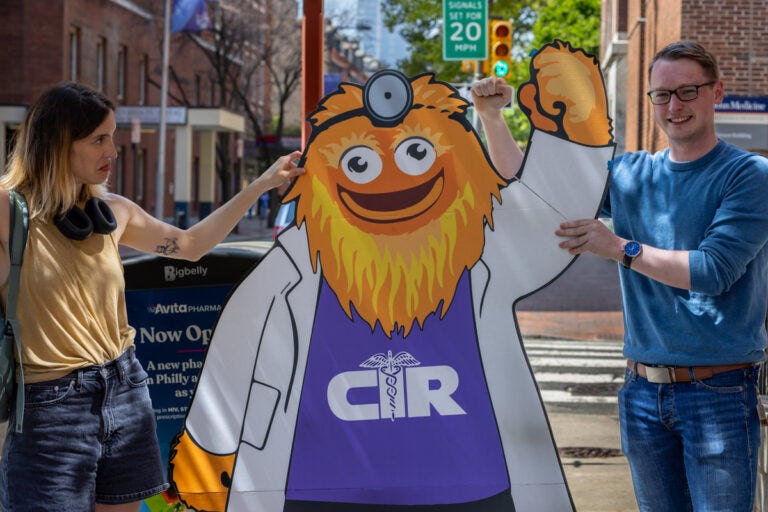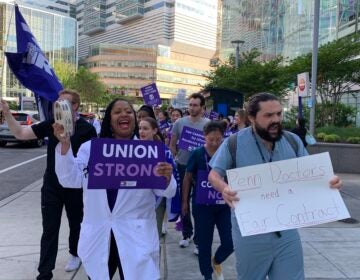Resident doctors at Penn Medicine to demand contract both inside and outside the hospitals this week
After almost a year of negotiations, the big sticking point now is over wages. Residents say they make a little above minimum wage after accounting for long hours.
Listen 1:27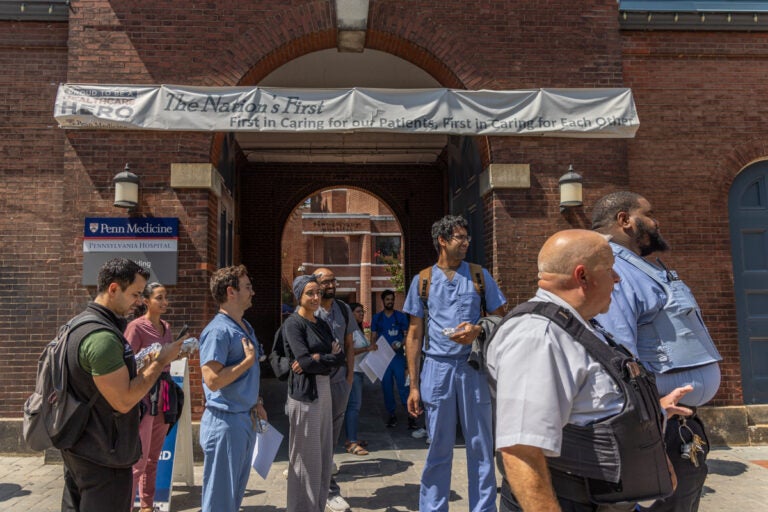
Pennsylvania Hospital security broke up collective action from Penn Medicine residents outside Pennsylvania Hospital Aug. 27, 2024. (Kimberly Paynter/WHYY)
From Philly and the Pa. suburbs to South Jersey and Delaware, what would you like WHYY News to cover? Let us know!
More than a year ago, resident doctors at Penn Medicine voted to form a union, and have been bargaining with the health system over a contract since. But they have hit a sticking point, so this week, the residents plan to demand a contract, both inside and outside Penn’s hospitals.
Union organizers had planned to gather with residents in front of Pennsylvania Hospital on Tuesday during their lunch break to give out food and celebrate a petition that the vast majority of residents had signed to support the union. However, Penn Medicine security drove them off the sidewalk, saying that Penn Medicine owns the sidewalk, and that the five people gathered in front of the hospital constituted a “crowd” that created an “access emergency.” The guards demanded the union organizers go more than a block away to stand in front of a building that Penn Medicine does not own.
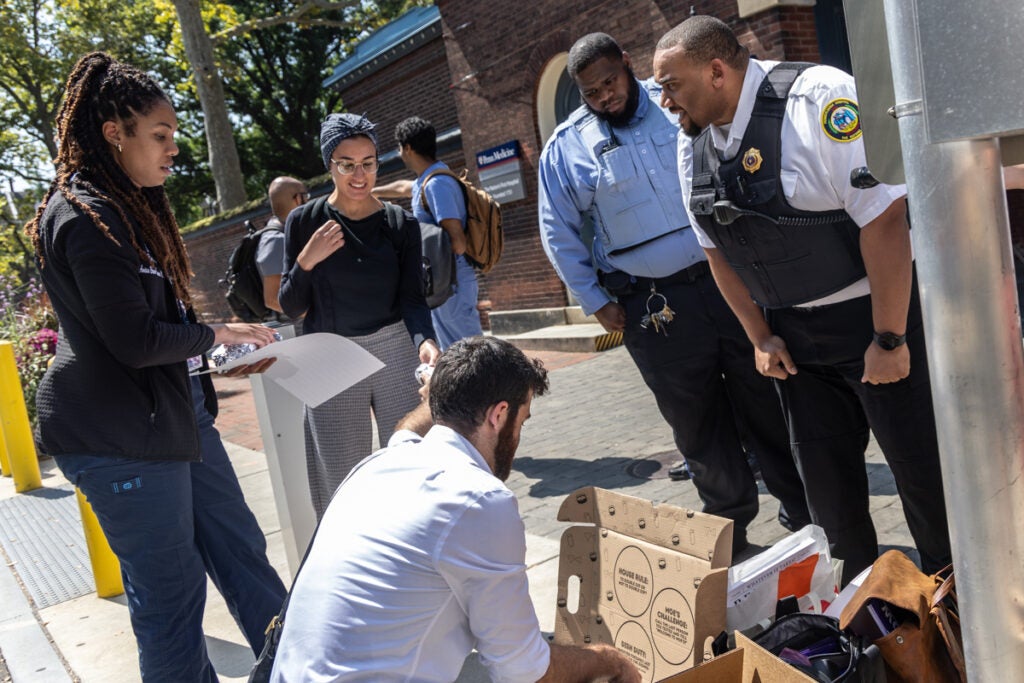
The union organizers said they will file a complaint of unfair labor practices with the National Labor Relations Board.
A Penn Medicine spokesperson responded that while people can demonstrate in public areas, “nonemployee, outside groups cannot conduct such activities on hospital property … or on sidewalks that serve as direct pathways for patients or guests to enter our facilities.”
Philadelphia’s Streets Department website says sidewalks are private property, but it is unclear whether a property owner has the right to deny someone access to a sidewalk. WHYY News has contacted the Streets Department for comment and will update this story if it responds.
The union and Penn Medicine have agreed on some parts of the contract, like better paid parental leave policies and more sick and personal days. However, the big sticking point now is over wages.
Medical residents can work up to 80 hours a week. They say they do most of the work taking care of patients in hospitals, but are not paid enough for it.
Residents end up making not much more than minimum wage once they take into account the number of hours they work, said Andrew Wade, a third-year internal medicine resident.
“Knowing that we’re not being valued for the work that we’re doing is very hard,” he said.
For instance, he said his partner is in a similar position at the Children’s Hospital of Philadelphia and gets paid significantly more for that work.
“We deserve to be … equally remunerated as our colleagues across the street.”
Residents have historically been underpaid because they cannot easily switch to another program, so it is not a competitive market, said Ianto Xi, a fourth-year resident in radiology.
He added that he has not been pleased with some remarks he heard from Penn Medicine during negotiations, such as a comment that if residents wanted to get paid more, they should have become physician’s assistants instead of doctors.
“There’s still a pretty wide gap between what we’re asking for and what they’re offering,” Xi said.

In a statement, a Penn Medicine spokesperson said that residents are highly valued, and that they have bargained for more than 15 times since last October. They say that they recently offered a proposal that would lead to a pay increase of more than 20% over three years, which the union rejected, but that they look forward to “finalizing a fair and equitable contract for our residents.”
The union says they have more action planned both inside and outside the hospitals this week to demand for a contract. Wade said that in the past, Penn Medicine has offered to bargain with them only after public demonstrations, like a rally in front of the Hospital of the University of Pennsylvania in May.
“It’s just a shame that we have to have these actions in order to kind of generate a response from Penn, but that seems to have been the way it is so far.”

Get daily updates from WHYY News!
WHYY is your source for fact-based, in-depth journalism and information. As a nonprofit organization, we rely on financial support from readers like you. Please give today.



